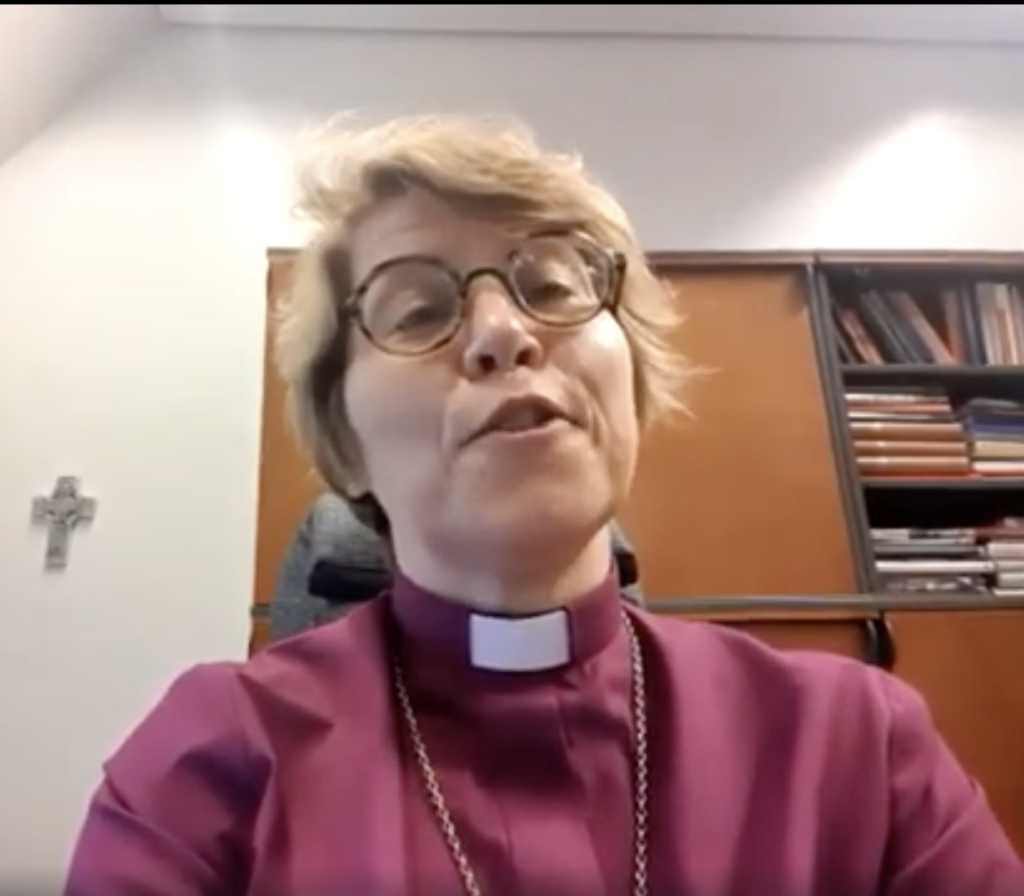
Christians around the world are facing something new with COVID-19. We need each other — for ideas, for encouragement, for hope. Our “Ministry During COVID-19” series are conversations with a diverse array of leaders, all over the globe, about how they’re coping and how God is showing up to unite and strengthen the church during this time.
To view this conversation, visit https://youtu.be/2X2vNBsCpYk
Rev. Dr. Kaisamari Hintikka is the Bishop of the Evangelical Lutheran Church of Finland’s Diocese of Espoo.
What is the ministry like in your context right now?
The Evangelical Lutheran Church of Finland and its parishes are supporting and walking alongside people in the current exceptional situation, no less than in normal times. People are unable to gather as usual. Many are working remotely, and those over 70 years of age are advised to stay at home. Many industries are at a standstill – restaurants, for example, will be closed until the end of May. This has led to widespread lay-offs and redundancies, and at the same time financial difficulties. In these circumstances, parishes are adhering to new ways of working in different areas.
Due to the COVID-19 epidemic, the number of participants in public meetings has been restricted in Finland. Restrictions apply also to masses and church ceremonies such as baptisms, weddings, and funerals. A maximum of ten people have been able to participate in church events, which means that parishes have not been able to conduct masses and other services in the normal way. In these exceptional circumstances most parishes have been posting video or audio worship on their websites and social media channels. The use of the internet has generally increased in the parish life.
Because the epidemic situation in Finland seems to be in control, the restrictions are changing in the near future. Starting in the beginning of June, the maximum number of participants in different church events and meetings will be 50, but it is possible to have even more participants in masses and ceremonies if all the safety measures have been taken care of and the size of the church building allows it.
What relationships or partnerships are being formed across denominations or faith groups?
This pandemic has highlighted the value of existing partnerships, both with ecumenical and with interfaith partners. Because these relationships already existed, we were able to respond to the pandemic very quickly. For example, the National Forum for Cooperation of Religions (CORE Forum) published on its webpage within a week a joint statement of all the main religious leaders in Finland. The networks and relations between different faith communities have also been in the service of national health care officials when they have reached out to ethnic minorities that were affected by the virus more than the majority population. The church leaders have intensified mutual communication and also communication with state officials.
What are the lessons you have learned about faith and your people that will outlast this pandemic?
The pandemic has highlighted the responsibility of Christians and other people of goodwill to always seek to protect the most vulnerable in the society. For example, parishes around Finland very quickly started to contact all elderly people by phone to make sure that they get the help they needed during quarantine.
The pandemic has proved that in times of crises the existential and spiritual questions become more important. This creates a challenge to proclaim the Gospel in a manner which is relevant to modern people. You need to find the right ways and wordings. While many traditional means of church work are at standstill, it has been necessary to find new means and patterns.
How are you thinking through your post-pandemic ministry?
We have established a working group to share best practices and to consider best ways for church work in the circumstances of “new normal.” The working group consists of representatives from small and big parishes, from the diocesan and central administration and from various sectors of church work. There will also be serious economic challenges for numerous parishes, and it will be necessary to set priorities and find ways to share the common burden.
We have learned new patterns of church work – especially regarding the use of electronic tools (Teams, Skype, etc.). It is necessary to take the full advantage of these possibilities also in the post-pandemic time.